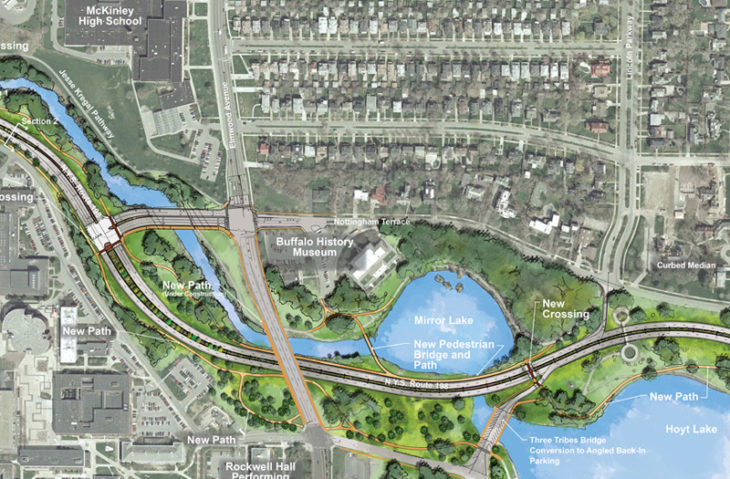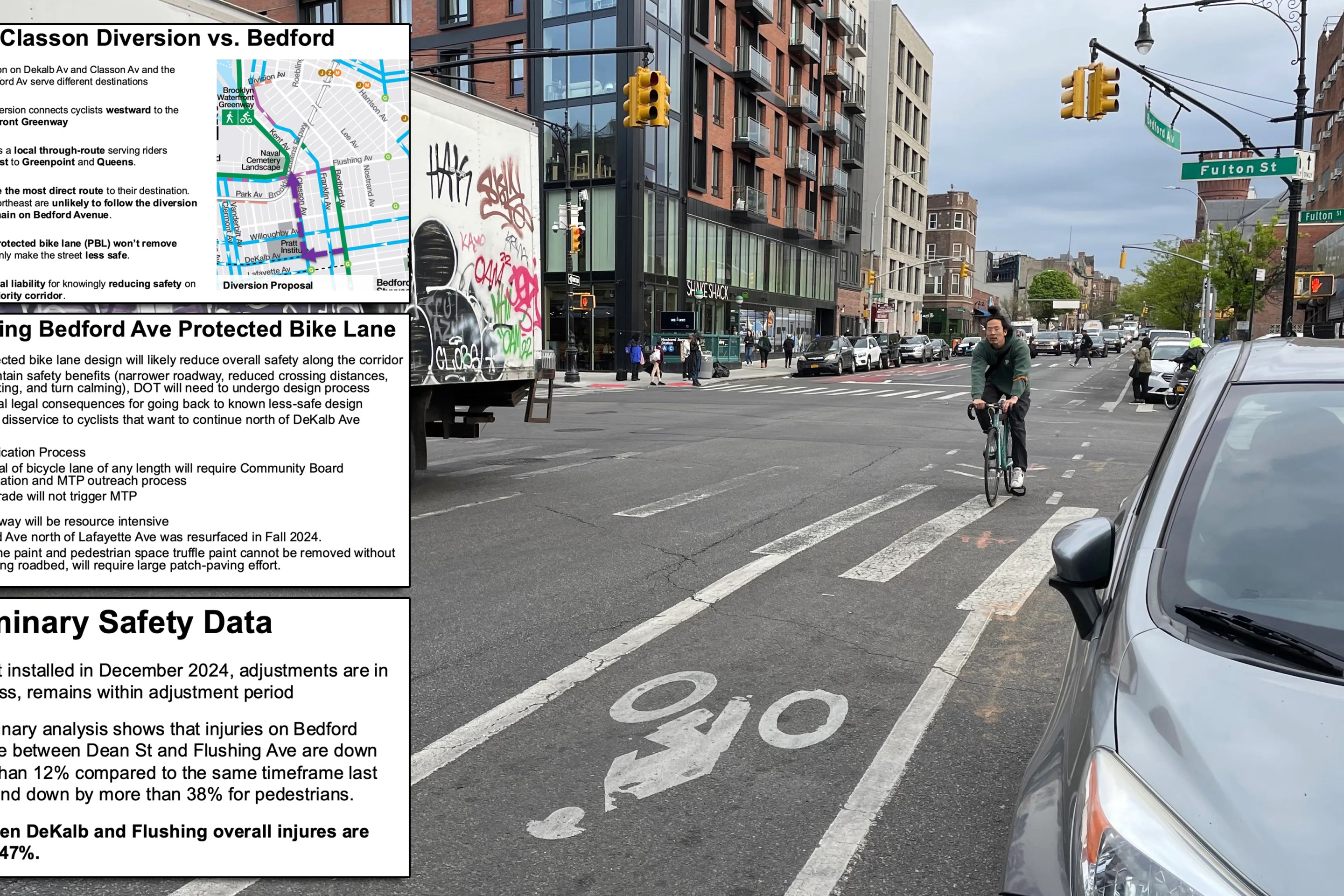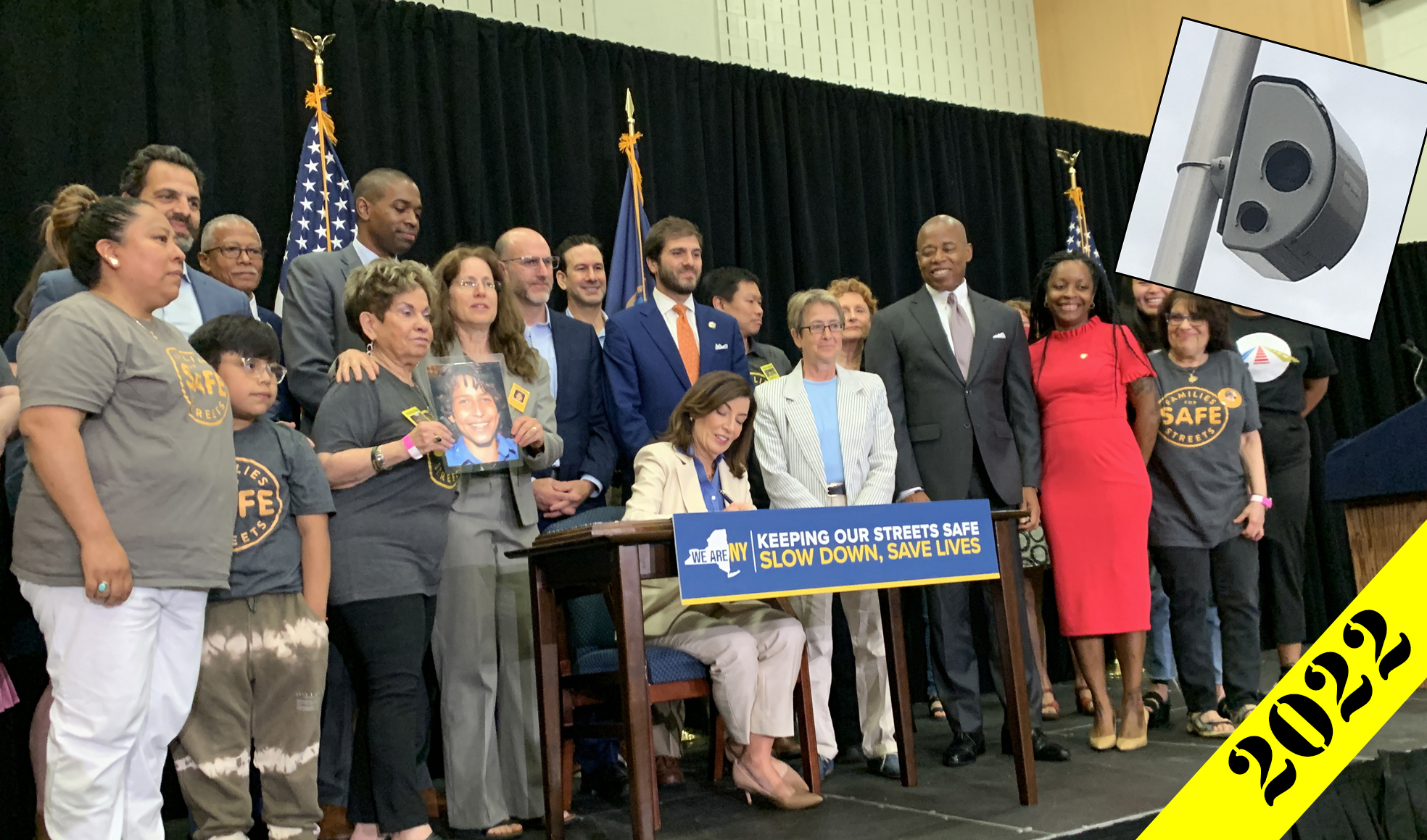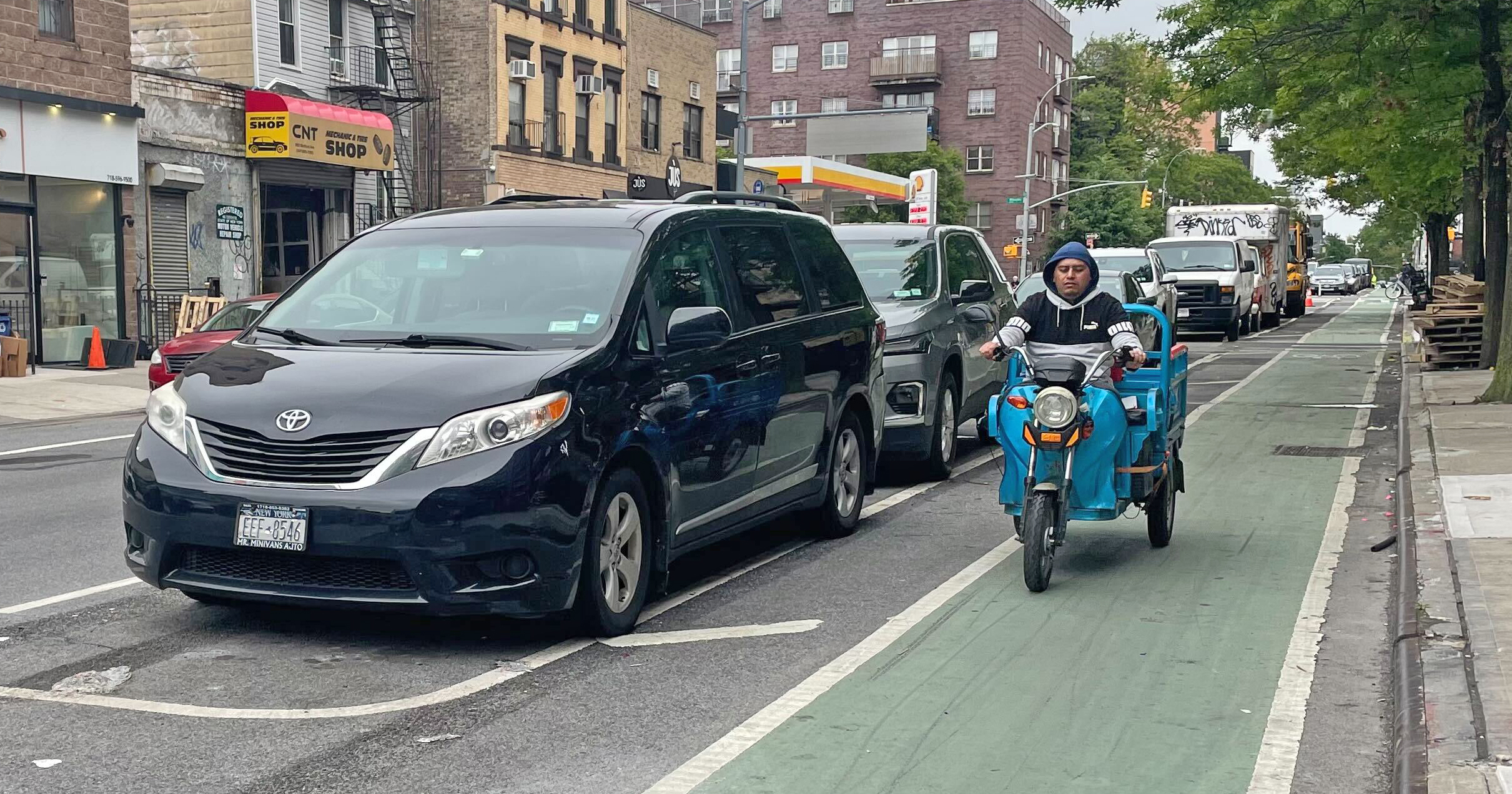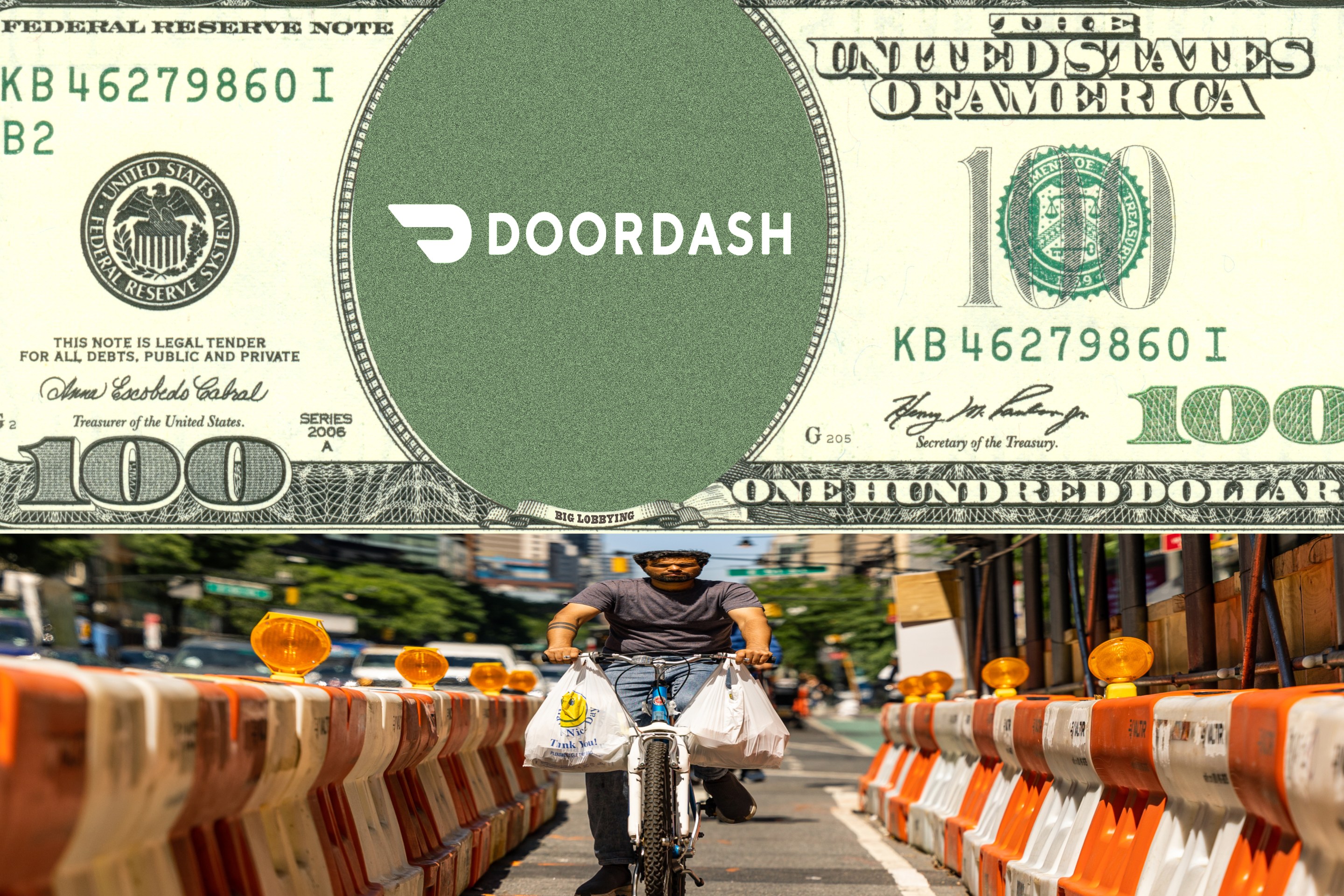Even when state DOTs decide to take down a highway, cities often have to fight an uphill battle against entrenched traffic engineering dogma that prioritizes the speed of cars over the health and safety of people.
In Buffalo, the state and the city both agree that the Scajaquada Expressway should be replaced with a surface boulevard. Since the 1960s this 3.6-mile highway has roared through neighborhoods and along the Frederick Law Olmsted-designed Delaware Park. Last year, a motorist drove off the highway and killed a 3-year-old boy playing in the park with his family.
While New York DOT has agreed to turn the Scajaquada into a surface boulevard, local advocates warn that the agency's replacement design allocates too much space for cars and not enough for people. Buffalo Rising reports:
Traffic calming advocates such as the Scajaquada Corridor Coalition (SCC) feel that the DOT has not gone to great enough lengths to ensure that the voice of the public has been heard. The SCC gives the following reasons for basing this decision:
- The lack of a meaningful and engaging public input process while NYSDOT ignores multiple submissions by community organizations with constructive recommendations;
- Prioritization of vehicle traffic over the safety of vulnerable users through:
- Over-sized intersections that will make crossings unsafe for pedestrians and bicyclists;
- Medians throughout the corridor at the expense of park space and on-street bicycle facilities; and
- Adverse impacts upon the Historic Olmsted Park and Parkway System as well as the surrounding cultural and educational institutions and business districts; and
- The plan’s limited scope, including the absence of addressing impacted communities west of Grant Street and east of Parkside Avenue.
The Scajaquada Corridor Coalition continues:
“As the New Buffalo continues to re-invent itself becoming a great city once again, NYSDOT is stuck in the Robert Moses-era of planning mistakes by focusing singularly on moving vehicles through our community. At no additional cost, the community’s Scajaquada Boulevard vision could cement our city’s renaissance if vehicle traffic is not the sole consideration of its design; instead, people are.”
Elsewhere on the Network today: Bike Portland reports on how local activists used hay bales and homemade signs to calm traffic on a dangerous stroad this weekend. RI Future says Rhode Island could soften the blow of its decision to rebuild the outdated, city-dividing 6/10 Connector by building a car-free bridge over the highway. And Urban Milwaukee wonders if Wisconsin will cut healthcare and education to pay for its bloated roads budget.
